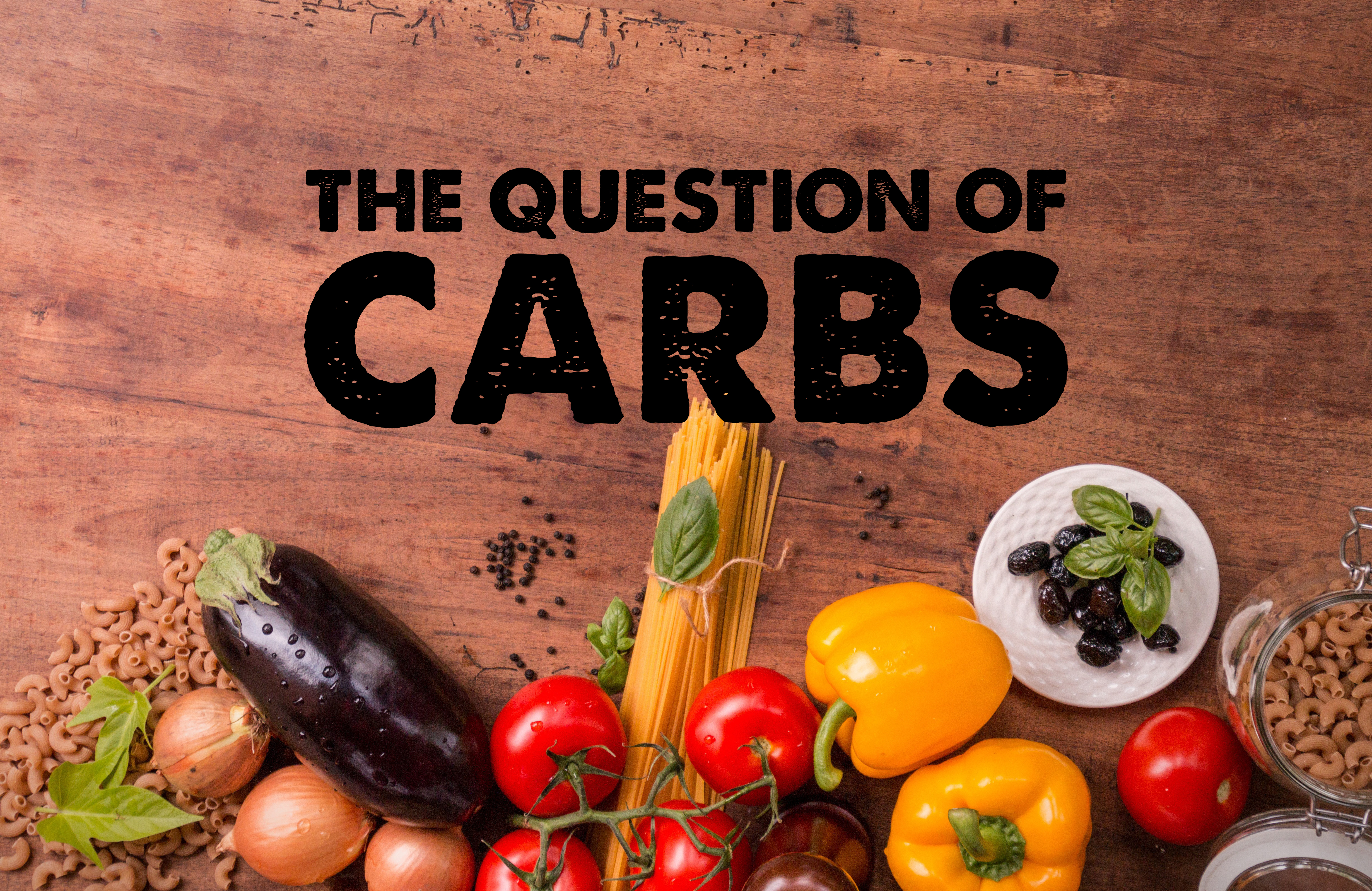The Question of Carbs
We covered all things protein and why it is important in the last blog post, but what is the deal with carbs? What are they, and why do we spend so much time talking and worrying about them? Well, buckle up, because you’re about to find out!
The Importance of Carbs
Carbohydrates are basically chains of sugar molecules, and contrary to what you’ve probably heard from friends or the media, they are actually necessary for energy and performance. In fact, the brain can’t even function without carbs.
When carbs are digested, they are converted to glucose. Glucose is the primary energy source that our bodies use to fuel most activities that increase our heart rate. It is also the brain’s preferred energy source, which means you’re thinking about carbs right now using a brain that is powered by carbs.
Carbs become even more important when you start working out because they serve to fuel physical activity, muscle recruitment and energy output more than any other macronutrient. Protein and fats pale in comparison to carbs when it come to fueling us for physical activity.
People need carbs so that they can fuel workouts, recover from workouts, and come back stronger the next time. It’s no secret that consistently performing better in workouts tend to get better overall results over time.
Low-Carb Diets
One of the primary reasons that most people struggle with a low-carb diet is because they are depriving themselves of their primary source of energy, which is not sustainable. Low-carb diets usually fail when carbs are inevitably added back into the diet. Carb intake increases, the scale starts going back up, and it leaves people wondering what in the world happened. Why did adding carbs back in cause weight gain? Was it an increase in body fat?
Nope. It’s nowhere near that simple.
Remember that bit about glucose and how it’s our primary energy source? Well, glucose is stored in the muscles, liver and glycogen. In order to store glycogen, the body uses water to hold it there. When someone drops carbs, they lose water weight in the beginning because they have less glucose. And because they have less glucose, they carry less water. Which means they are lighter on the scale, but they also have less energy.
When carbs are added back in, the scale jumps back up because the body has started to store more glycogen again, and with it, more water. Which is why the number on the scale increases when someone starts eating carbs again.
Notice that gaining body fat was not mentioned anywhere in the above description because adding body fat doesn’t work that way. Body fat is gained when someone eats too many calories, plain and simple. But here’s where things get really crazy – when you’re eating too many calories, the body responds by storing body fat, and most of that stored body fat comes from dietary fat, not carbohydrates.
What About Sugar?
Fair question! There’s no diet in the world that can be called healthy that has a ton of sugar in it, but that doesn’t mean that sugar has to be completely avoided.
In reality, sugar can fit within the context of a normal and healthy diet when used properly. If it is making up about 10% of your carb intake, you are typically going to be fine. People get into trouble when sugar is making up 50% or more of their diet for an extended period of time, i.e. for years.
Are All Carbs Created Equal?
Just like all things, be smart about the quality and quantity of your carbs. Getting all your carbs from sugar doesn’t exactly constitute a healthy diet, but you also don’t want to deprive yourself by only eating broccoli and asparagus for the rest of your life. Instead, choose quality sources of carbohydrates most of the time. Minimally processed carbs like fruit, veggies, rice, and whole grains are great options.
Stay tuned for our next lesson where we go over the importance of fats, the role they play in the diet, and how you can make them work for you.
But, until next time, go enjoy some carbs!
Learn more about the SISU Nutrition Program.
—-
References
Everything You Need to Know About Carbs, www.strongeru.com, March 18, 2008
Intermittent Fasting: Burn Fat Incredibly Fast, Gain Muscle and Live Longer, Jonathan Bukowski, 2015
Food Points: A Comprehensive Guide to Healthy Eating With Food Points, John Carter, 2018
Heavy Brain: How Your Mind Affects Your Waistline, Thomas Caldwell, 2018

